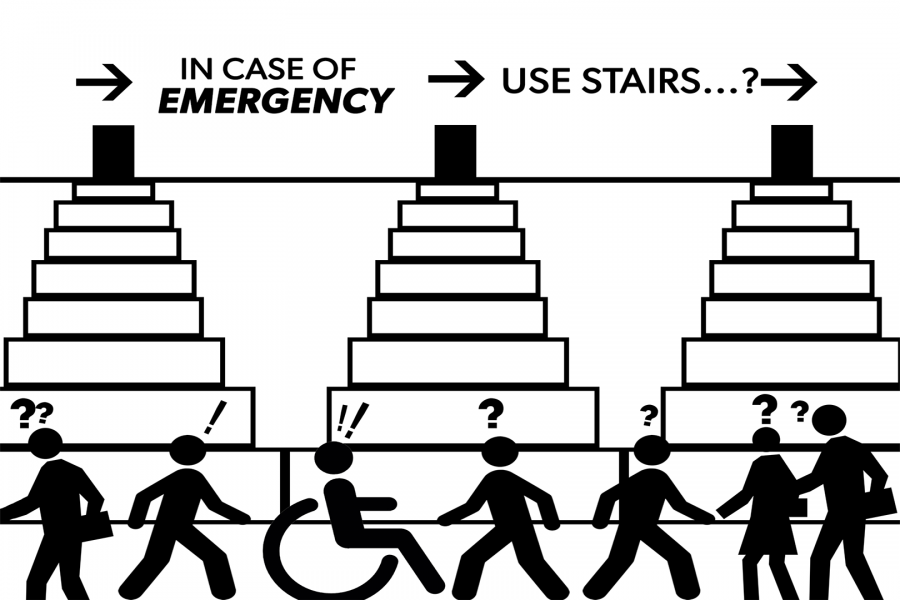You’re walking down Miracle Mile, the warmth of the sun kisses your skin as you listen to your favorite playlist. A Twitter notification pops up on your phone of the newest trend. Now you’re lost in a sea of tweets.
All of a sudden, people keep running past you but you keep walking, and tweeting about how annoying people are at school.
A person running by yanks you by the arm and shouts, “Run!”
In the event of an emergency, students on their phones and listening to music on earphones may not notice until it is too late.
Looking down at a screen prevents you from noticing any suspicious or alarming behavior. People cannot react to an emergency immediately while on their phones.
“In order to survive these events you have to have situational awareness,” Mt. SAC Deputy Chief Bob Wren said during an Active Shooter Training workshop held on campus.
Self awareness can increase your chances of survival during an emergency. Whether it is an active shooter, a fire, earthquake, a bomb threat, or any terrorist attack, you must be ready to initiate your survival mindset.
Listen to your instincts. Watch people’s behavior and play close attention to their body language. If you do not feel safe get out and call security.
Reporting suspicious activity can prevent tragedies from happening.
There is no such thing as being too cautious. This is especially important in open or crowded areas, like libraries, movie theaters, parks, parking structures, and schools.
Whenever in a building make sure to know where all the emergency exits are located. If you’re not in the scene, you cannot be a victim.
You must be thinking about getting as far away as possible until your reach safety. Emergency exits provide a clear way to exit a building. If there are no emergency exits, create your own.
During an active shooting, exit the building unless the shooter is right outside the door exit.
Many times teachers have told students to hide under a table but the table will not shield you from the bullets. If you are told to evacuate by an authority that’s exactly what you need to do.
Many instructors are not properly trained to react in the case of an emergency.
Remember to always remain as calm as you can, panicking can slow you down. If you are caught in an emergency remember to evacuate the building if you are told to do so. In most emergencies distance and obstacles are your best friend.
Remember to always have an emergency plan. You need to ask yourself, “What would I do if I’m ever in these situations?”
Plans and preparations include:





